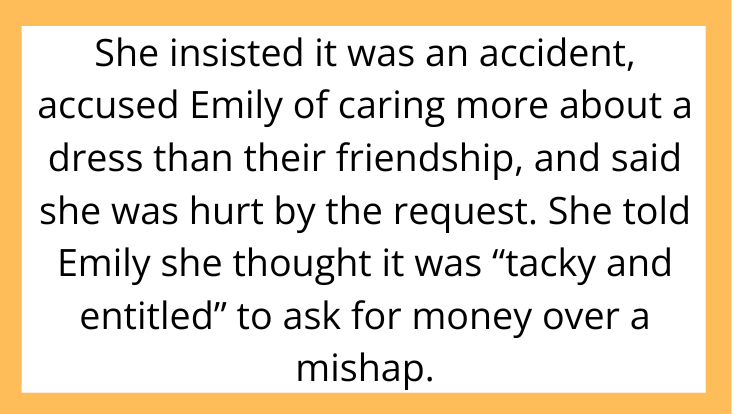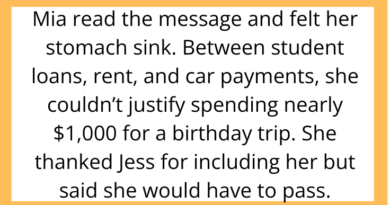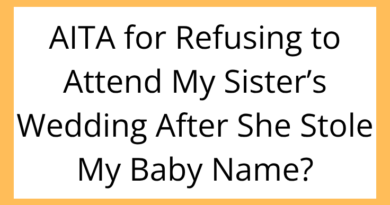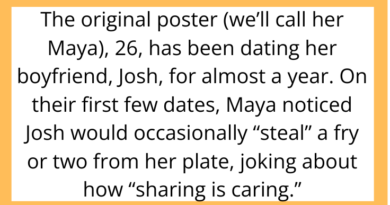AITAH for Asking My Best Friend to Pay for a New Dress After She Spilled Wine on It?
Imagine spending weeks searching for the perfect dress for a special occasion—only to have it ruined in a single moment. That’s exactly what happened to one woman who turned to Reddit’s r/AITAH community to find out if she was wrong for asking her best friend to pay for the damage.
Her question sparked a heated debate about personal responsibility, friendship, and the awkwardness of mixing money with relationships.
Let’s take a closer look.
The Situation: A Ruined Dress and an Awkward Conversation
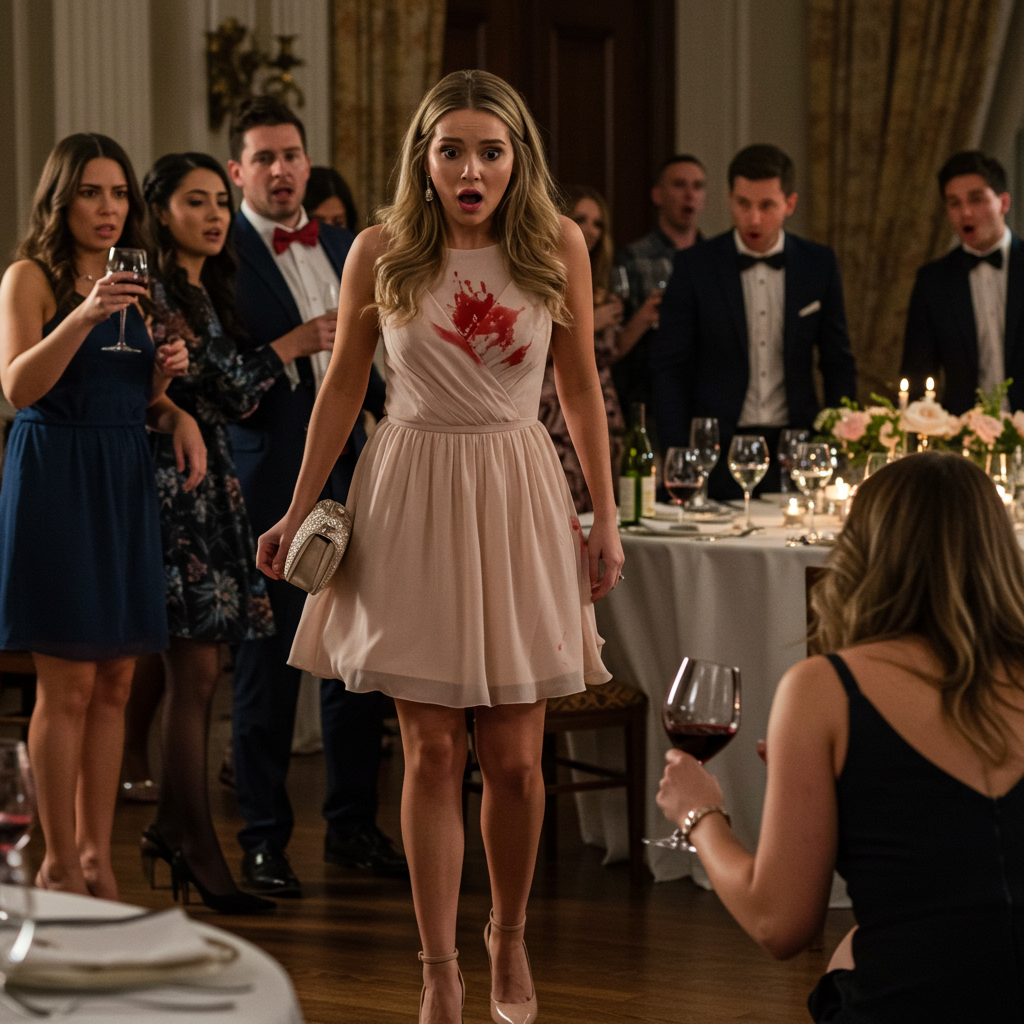
The original poster (we’ll call her Emily) shared that she had purchased a designer dress for her engagement party. It was the most she’d ever spent on clothing—about $600—and she felt amazing in it.
The evening was going beautifully until halfway through the party when her best friend, Claire, accidentally tripped while holding a full glass of red wine. The wine splashed all over Emily’s pale pink dress, soaking the fabric and leaving stains that wouldn’t come out, even after professional cleaning.
Emily was devastated.
After a few days of thinking it over, she gently asked Claire if she would consider helping to cover the cost of replacing the dress.
Claire was shocked—and offended.
She insisted it was an accident, accused Emily of caring more about a dress than their friendship, and said she was hurt by the request. She told Emily she thought it was “tacky and entitled” to ask for money over a mishap.
Reddit Responds: Who’s the Real Villain?
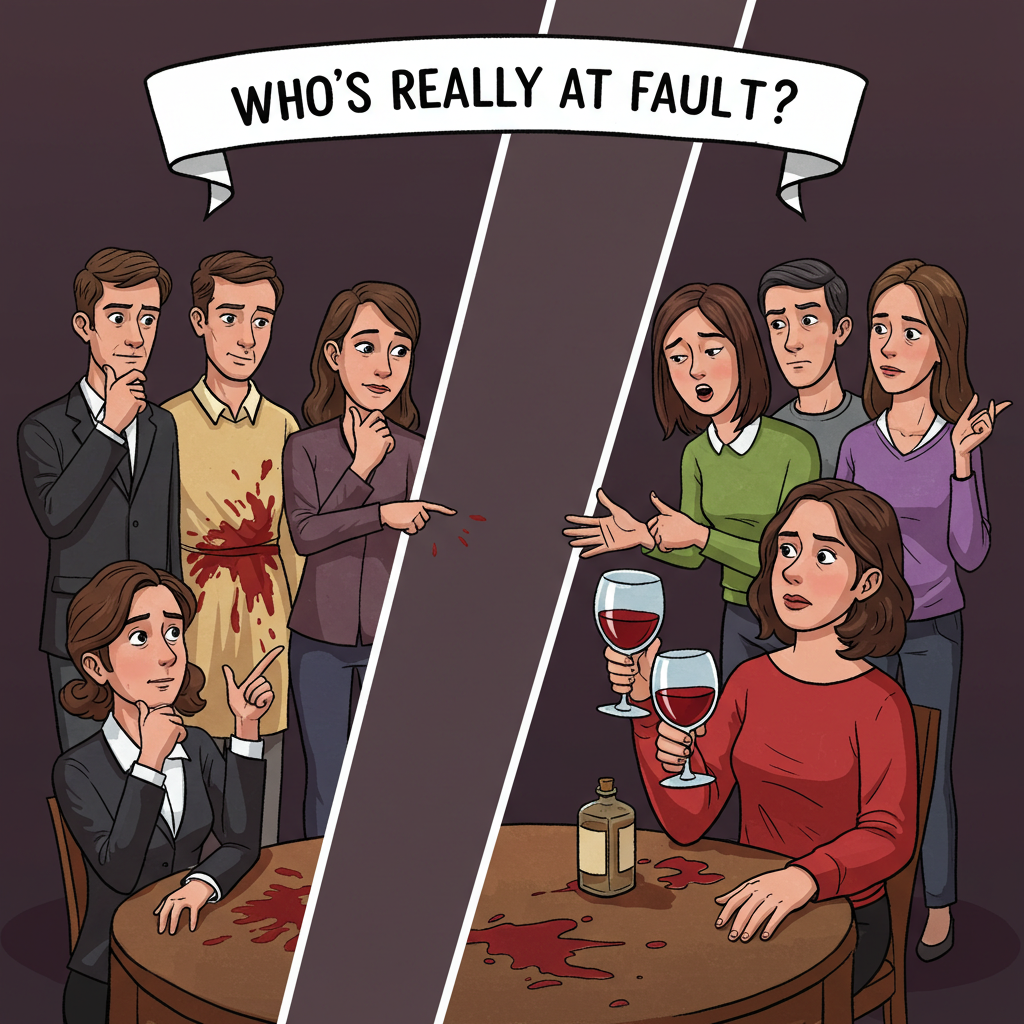
Thousands of commenters weighed in, and while opinions were mixed, the majority felt Emily was not the villain.
Why Many Sided with Emily
-
Accident Doesn’t Equal No Responsibility: While Claire didn’t mean to ruin the dress, she still caused the damage.
-
Adult Accountability: Most agreed that part of being a responsible adult is owning your mistakes—even accidental ones.
-
Expensive Item: A $600 dress isn’t easily replaced, and Emily wasn’t demanding cash on the spot—she simply asked if Claire could help cover some of the cost.
One commenter summed it up well:
“Just because it was an accident doesn’t mean it didn’t happen. If you break something, you pay for it. That’s basic respect.”
The Case for Claire: It Was Just an Accident
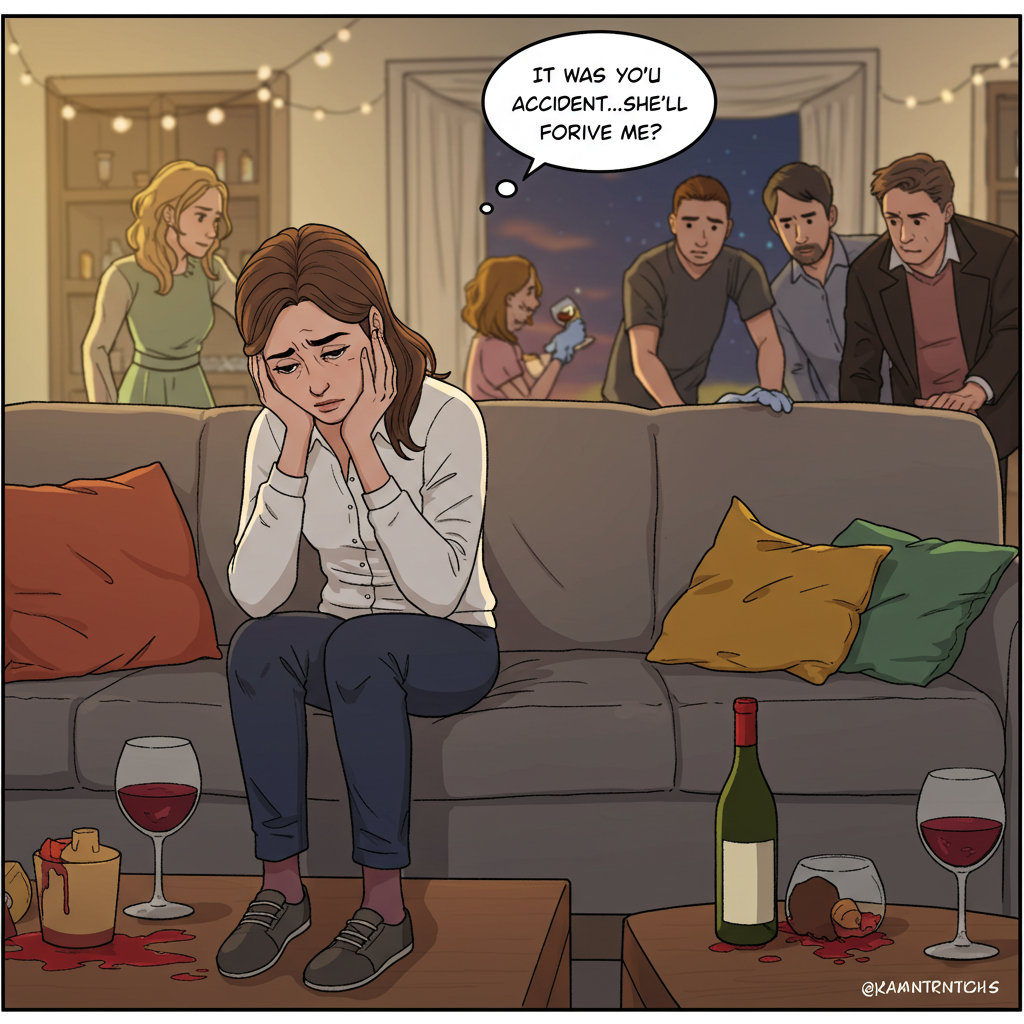
Still, many others sympathized with Claire’s feelings:
-
No Malicious Intent: Claire didn’t spill the wine on purpose.
-
Social Setting: Parties are chaotic environments, and accidents happen.
-
Friendship Over Money: Some argued that asking for reimbursement could damage a lifelong friendship over a material item.
Another commenter added:
“I get that the dress was expensive, but sometimes accidents are part of life. It feels a bit cold to put a price tag on a friend’s mistake.”
The Bigger Question: When Do Accidents Become Your Responsibility?

This AITAH scenario isn’t really about a dress—it’s about whether people should pay for damage they cause, even unintentionally.
In social situations, we often let small mishaps slide to avoid conflict. A broken glass? No problem. A wine stain on jeans? Forget it.
But when the item is costly, the expectation can change. For many people, $600 is a huge sum—and simply shrugging it off doesn’t feel fair.
Navigating Money and Friendship

Talking about money with friends is uncomfortable. Even when you have every right to ask for reimbursement, it feels awkward and personal. Here are a few tips if you ever find yourself in a similar situation:
-
Be Direct but Kind: Avoid guilt-tripping or shaming. State the facts calmly.
-
Acknowledge the Awkwardness: Saying, “I feel uncomfortable bringing this up, but…” shows empathy.
-
Be Open to Discussion: If your friend can’t pay the full amount, maybe they can contribute partially.
-
Focus on the Relationship: Reassure your friend that you value them and don’t want this to end your friendship.
What Should Emily Do Next?
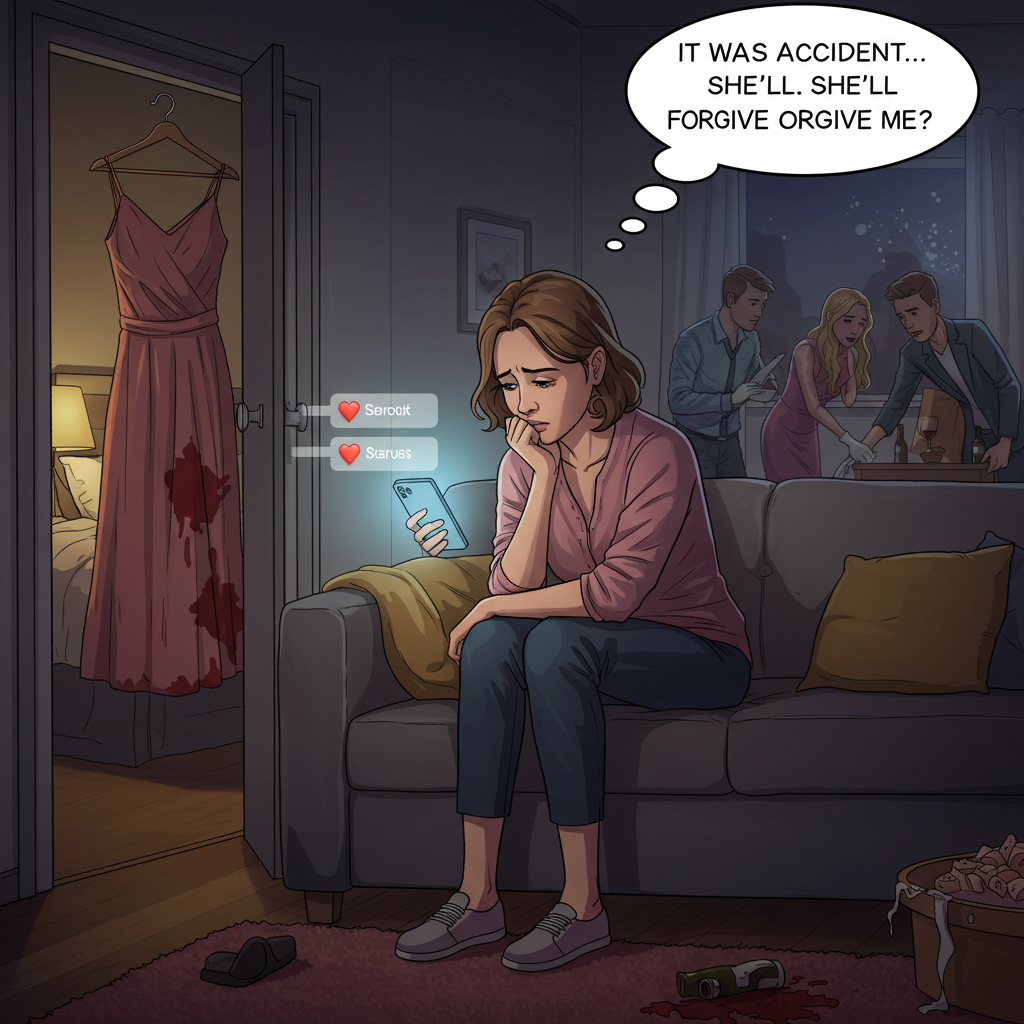
Many Redditors recommended that Emily consider a compromise. If Claire can’t or won’t pay for a replacement dress, perhaps they could split the cost or agree on a smaller reimbursement to help offset the loss.
Ultimately, Emily will have to decide whether preserving the friendship is worth letting go of the money—or whether Claire’s unwillingness to take responsibility says something deeper about the friendship itself.
Takeaway: Accidents Happen, But So Does Accountability

In this AITAH scenario, most people agreed that Emily’s request was reasonable, if uncomfortable. Even though accidents are unintentional, adults should be prepared to make things right when they cause harm—especially when the damage is significant.
At the same time, how we handle these conversations reveals a lot about our values, priorities, and the strength of our relationships.
